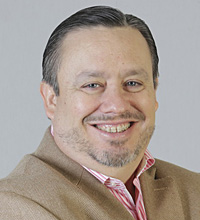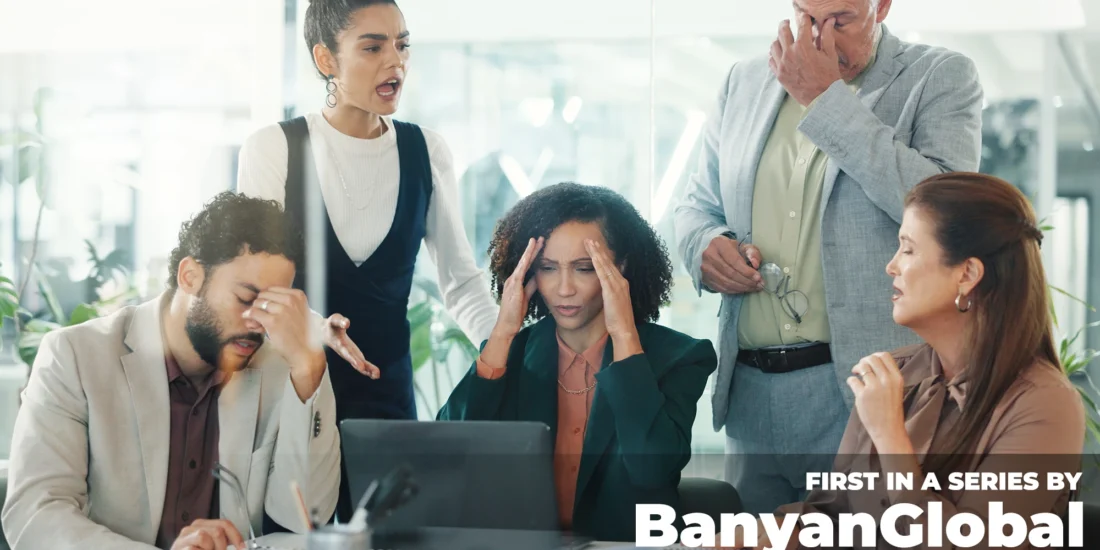Adaptation and Planification: Families that stay together engage in institutionalizing adaptation
If you know what will happen, it is easier to be prepared. If you don’t know, then you’ll have to adapt to whatever happens.
And… it gets harder every day to know what will happen since so many factors can affect future occurrences. The volatility of the markets, economic recessions and the drop in oil prices are clear and painful reminders that projecting the future is little more than sleight of hand.
Thousands and thousands of people around the world already know that events — which in theory and from a global perspective are very far away and tiny — have a huge impact on their daily lives.
The Arab Spring that motivated the 2016 migration crisis of Iraqi and Syrian refugees started due to the desperation of a Tunisian businessman provoked by the arbitrary actions of a suspicious police officer on December 17, 2010. As many people were all rushing to get Christmas presents.
In fact, it is almost impossible to predict what will happen to our immediate surroundings in the medium-term. Or… as stated by the author and actor John Cleese: “If you want to make God laugh, tell him about your plans.” (Interview by Lluis Amiguet of “La Vanguardia” on 03/04/15)
Nevertheless, the consequence of this is not the demise of planification and the ascension of improvisation.
Now more than ever I think that a true leader needs to analyze and have a plan prepared. But not from the arrogance of pretending that his or her plan has to come true because he or she is so smart, but rather from the humility of knowing that although it may not happen , it is still a good way to proceed.
Planning is not predicting the future, but rather designing approaches to discern and recognize different scenarios when they are closer to us and to analyze in advance the best alternatives for our plan of action.
But what does all this have to do with family enterprises?
In some ways, family enterprises can actually predict the future. For example, there will always be death and the possibility that our own death will also be the death of our legacy.
In other words, family enterprises may have an advantage over those enterprises that are not family-owned, i.e., they have to confront the certainty of death and the importance given to what happens to the family and the enterprise after the founders and next generation members are gone.
The CEOs of multinational companies often lack this advantage. Their organizations are born and then they die. Their members retire or are fired. But in families, there is no retirement and you can’t be fired from the family. For good or bad, one always belongs to one’s family.
So… families that stay in business together engage in institutionalizing adaptation.
Here are some examples:
- They acknowledge their present and future legacy.
The legacy that has already been established allows family enterprises to understand what they are and what they are not, i.e., their nature and their potential. The legacy to create allows them to agree on the actions that are to be carried out.
- They share power among generations.
Families have shared power in the past and will share power in the future. Biology forces them to do so. This responsibility can become an excellent platform for a workforce made of people of different ages, genders, professions, ideologies, etc. And that is one of the key reasons why family enterprises have the inherent germ of adaptability. Because the more people you have sharing perspectives, the easier it is to analyze diversity. Because the more diversity you have, the easier it is to “move the pieces” in order to respond to one or another environment.
Taking advantage of the benefits of diversity is harder in non-family enterprises. Curiously, the culture of merit usually prevents the ideas of those with lower degrees to reach the board of directors. But in a family enterprise, belonging to the family can give you additional power to express your opinion and suggest a new or different perspective.
- They create structures for decision-making.
Sharing power is not easy. All of us find it hard. To help achieve this, it is important for families to create an infrastructure where power is shared. An infrastructure where decisions involving issues beyond the scope of the members of the existing infrastructure are shared. By structure I mean norms, policies, equipment, strategies, procedures, systems, etc.
- They train the potential of their youngest.
Diversity based on ignorance is useless. Therefore, in reference to adaptation, it is important that the new generations are trained the best way possible. But not all useful intelligence is purely intellectual. Therefore, families must not only provide their youngest with an academic education, but also with an experience-based and emotional education.
Not all of us were born to be leaders. We certainly do not all need to be leaders. If a family invests in the individual vocations of its youngest, it will be rewarded with diversity capital gain… and this educated diversity will bear fruit.
In a family enterprise we can all share what we are. And what we are, when referring to diversity and adaptation, has a value in and of itself.
As a matter of fact, the older generations also need to prepare. When a family leader does not step aside, he or she must wonder if it is that there is no successor who is prepared to be a leader or if it is time for him or her to stop being a leader.
- They request, offer and provide help.
A family environment is more suitable to request, offer and provide help. And those behaviors are critical parts of the process of adaptation.
Homo sapiens adapted to drastic changes during 2.5 million years of history and prehistory. But it was not the individual who adapted. It was the species. The species collaborates. The tribe collaborates. The family collaborates.
If “the best way to predict the future is inventing it” (as Alan Kay, computer innovator and UCLA professor said at XeroxPARC in 2007), our role as consultants for family enterprises is not to invent a future for our clients. It is to be there with them while they themselves invent a future through an ongoing process of trial and error.
Trial and error (and, sometimes, the right choice) is not an improvised reaction when confronted with change. It is in reality the circular process of adaptation and collective learning which includes: analyzing reality; understanding its meaning and implications; designing alternatives, decision-making and taking action; and analyzing the new reality all over again.
About the contributor
 Miguel de Merodio is executive director of the Valdáliga, Inc. Family Enteprise Forum in El Salvador. The firm consists of coaches, consultants and managers who help CEOs from Central America improve their skills and leadership. Miguel can be reached at miguelgdemerodio@gmail.com.
Miguel de Merodio is executive director of the Valdáliga, Inc. Family Enteprise Forum in El Salvador. The firm consists of coaches, consultants and managers who help CEOs from Central America improve their skills and leadership. Miguel can be reached at miguelgdemerodio@gmail.com.




